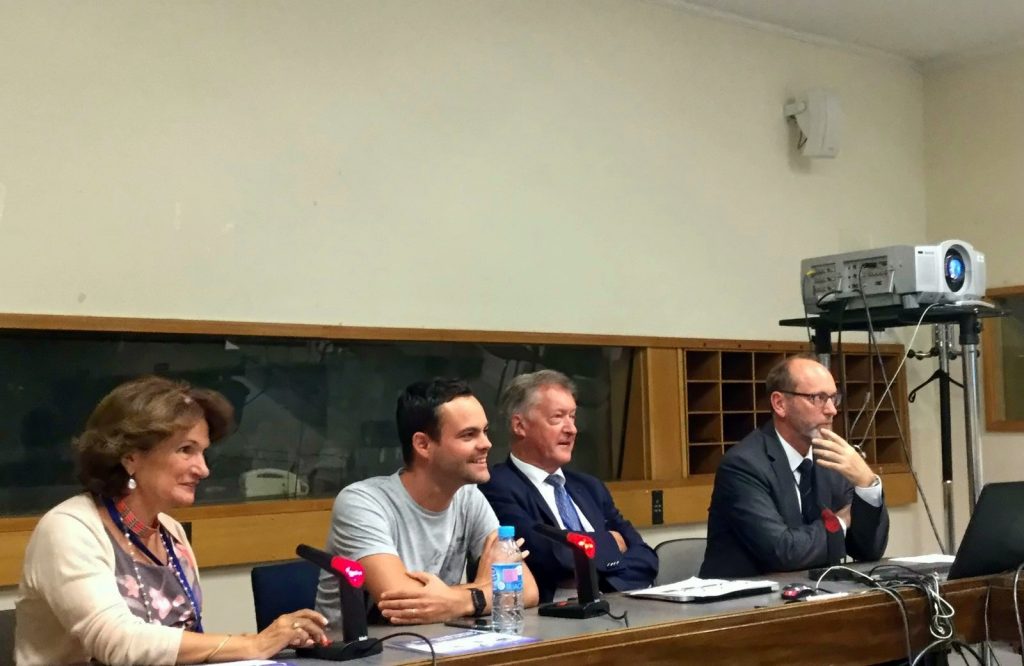Nelson Mandela believed that, “education is the most powerful weapon which you can use to change the world.” Indeed, education is the key ingredient to advancing society. Through open education – allowing mainly free and rapid dissemination, enabling people around the world to access knowledge, connect and collaborate – expanding educational opportunities is more possible now than it has ever been before. But what are the new challenges of a world constantly raising new barriers? How to adapt and improve Open Education? What is the role of Open Educational Resources? What is UNESCO’s contribution in transforming distribution and the usage of its publications? What are good practices we could look up to?

The Memory and Future Club of UNESCO’s AFUS seeks to highlight the experience of former and current UNESCO staff members and to balance it against the vision of their successors, as well as against the current challenges of international cooperation, aspiring to use past experiences to enhance future directions. “Open Education for a Closing World” forum, presented by AFUS Memory and Future Club at the UNESCO headquarters on June 29th 2017, was a unique event designed to discuss different facets of open education. Moderated by Ms. Stamenka Uvali?-Trumbi?, the meeting tackled key challenges of open education, discussed distinctive open educational resources, presented UNESCO’s reform from Open Access to Better Access, and exemplary open projects and Initiatives.
Sir John Daniel highlighted the development, role and contribution of Open Educational Ressources. UNESCO forged the OER denomination in 2002 -approved by the Paris Declaration in 2012 (OER World Congress), urged governments to encourage the open licensing of educational materials produced with public funds.
This Declaration challenged UNESCO itself, which had previously issued its publications under copyright. Mr. Ian Denison described how UNESCO introduced open licensing and reflected on the impact of this revolutionary change on the distribution and use of its publications.
OER have contributed to the steady growth of online learning which now extends education to people everywhere. Mr. Mathieu Nebra’s and Mr. Pierre Dubuc’s commitment to educational technology began when they were only teenagers. They went on to co-found the extraordinary successful French company, OpenClassrooms, which now rides the crest of online education with 1,000 courses and over 3 million learner members.
The roundtable discussion highlighted a number of areas for future collaboration.
We are grateful to the organizers for the invitation and the opportunity to exchange ideas with very inspiring professionals and experts.
Chair and Speaker Biographies:
Ms. Stamenka Uvali?-Trumbi?, former Chief of the Higher Education Section of UNESCO, is an international leader in education reform, innovation, quality assurance, and accreditation. Voted International Higher Education Professional of the Year 2009 by her peers in the International Community of Higher Education, Ms. Uvalic-Trumbic was recently named Senior Consultant to the U.S. Council for Higher Education Accreditation. Currently, she continues to be a consultant to UNESCO for Higher Education; in China she is the Education Master with the DeTao Masters Academy.
Sir John Daniel joined UNESCO as UNESCO’s Director-General’s Assistant for Education in 2001, just after the Dakar Forum of 2000 had charged UNESCO with global leadership of the EFA campaign. After leaving UNESCO, he was President of the Commonwealth of Learning for eight years, where he was closely involved in the organization of UNESCO’s 2012 World Congress on Open Educational Resources. Sir John remains professionally active as Chair of the United World Colleges International Board, as Research Associate, Contact North, Ontario and as Education Master in the DeTao Master Academy in China.
Mr. Ian Denison is the Chief of UNESCO’s Publishing and Branding Section in the Sector for External Relations and Public Information. He was formerly Chief of Communication at the International Institute for Educational Planning (1995-2005) and Public Information Officer at the UNESCO Institute for Statistics (2005-2007). He currently serves as the Secretary of the UNESCO Publication Board, established in 2011 to guide and strengthen publishing policies at UNESCO.
Mr. Mathieu Nebra is the co-founder of OpenClassroms, the leading online education platform in Europe with more than 3 million unique visitors. Mathieu created the site at age 13 with the strong belief that innovation and technology can empower anyone to master digital skills. OpenClassroms is making education accessible to all by delivering vocational training and internationally recognized degrees fully online. Mathieu is a key innovator in online learning and was selected as MIT Innovator under 35.
